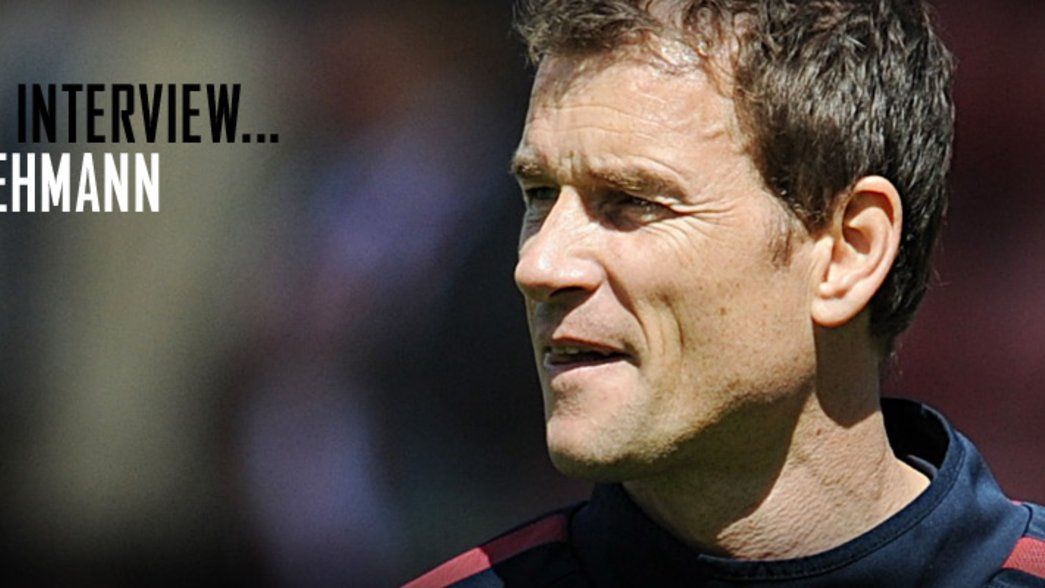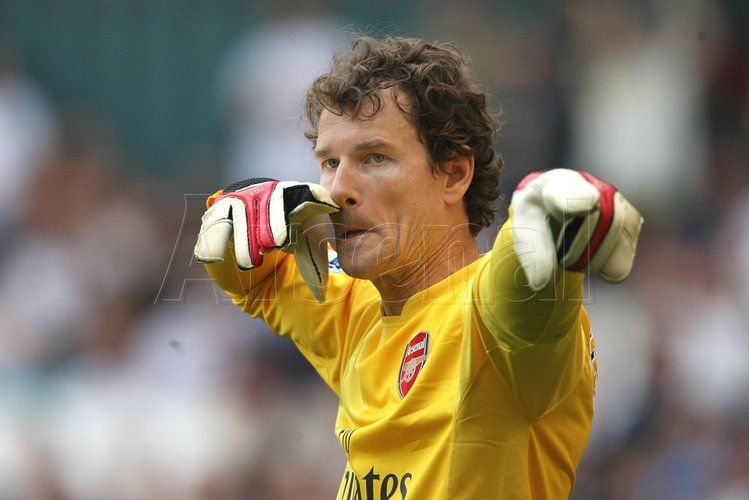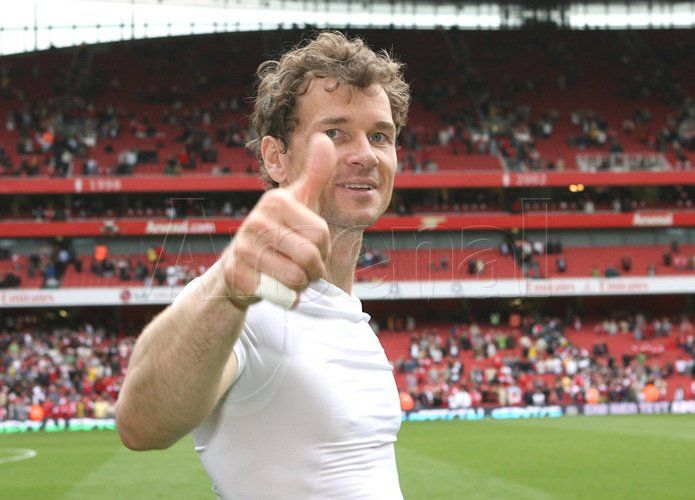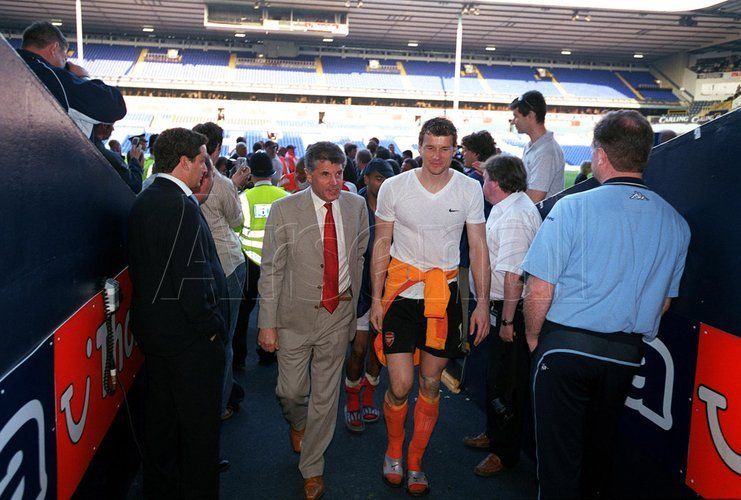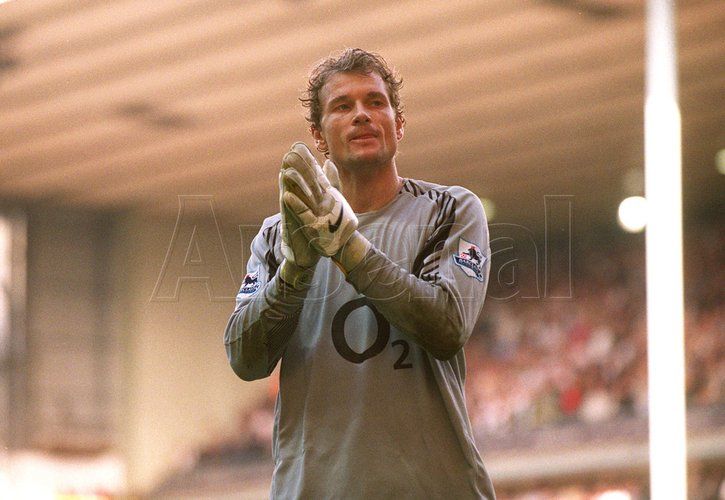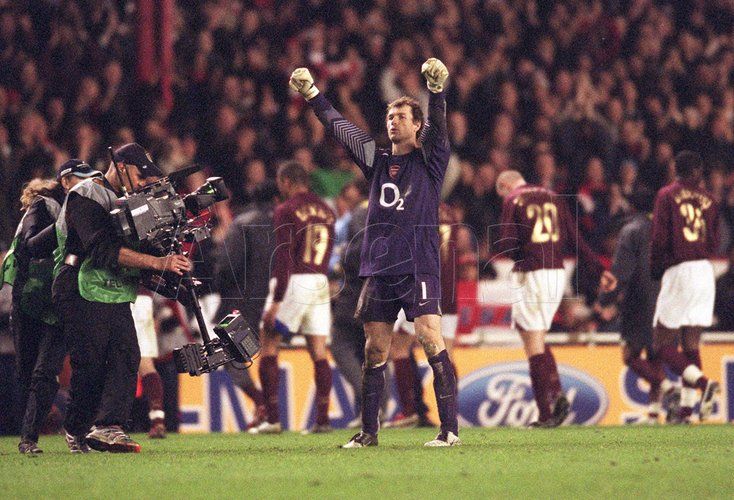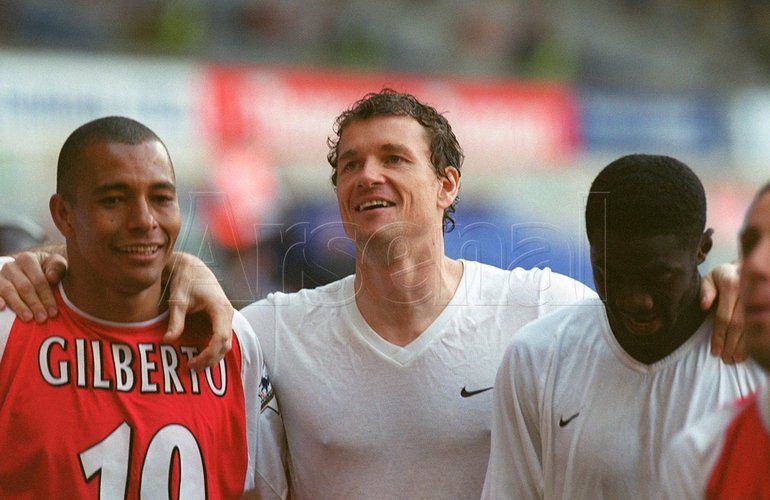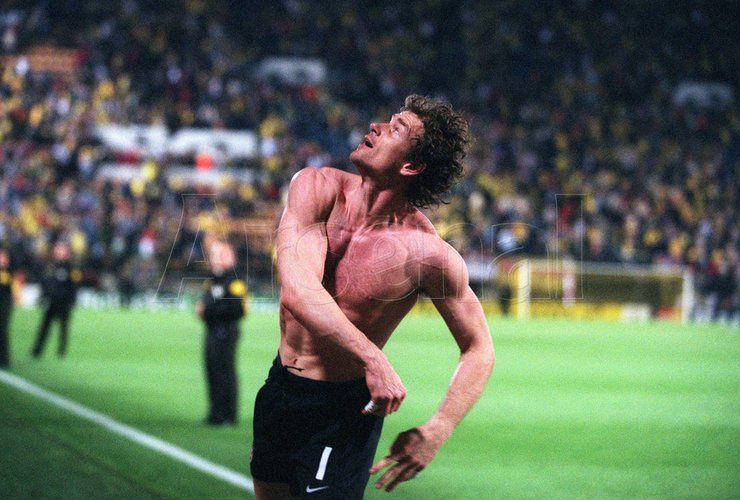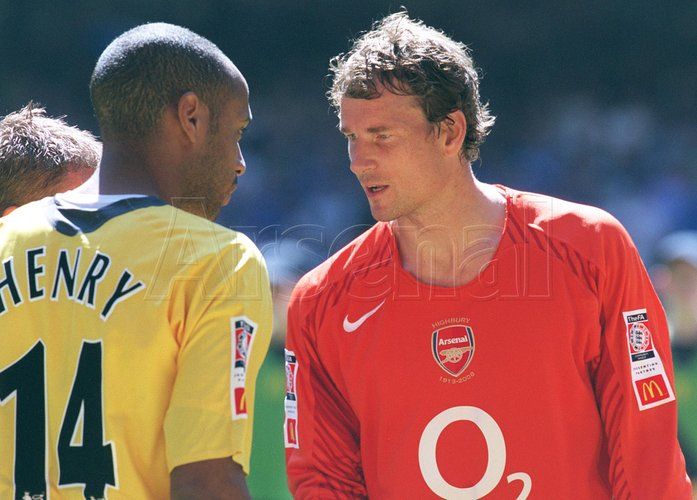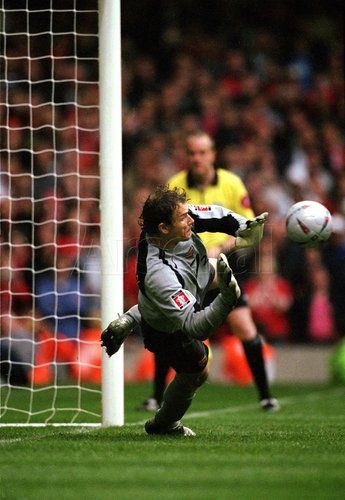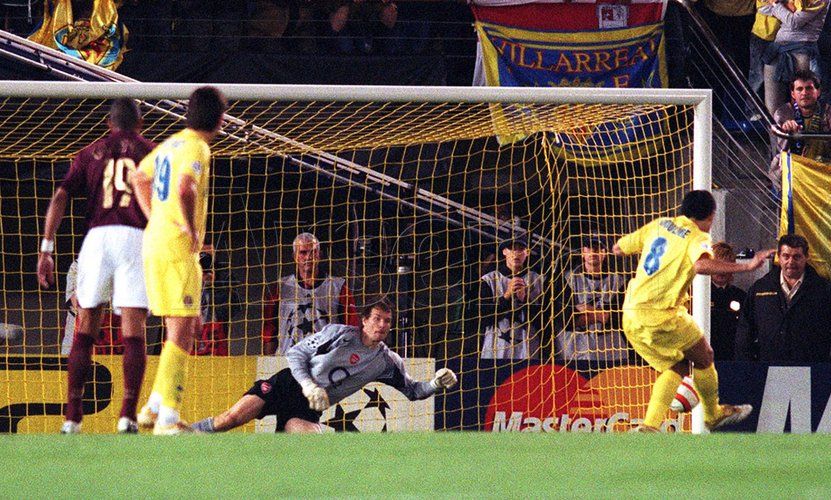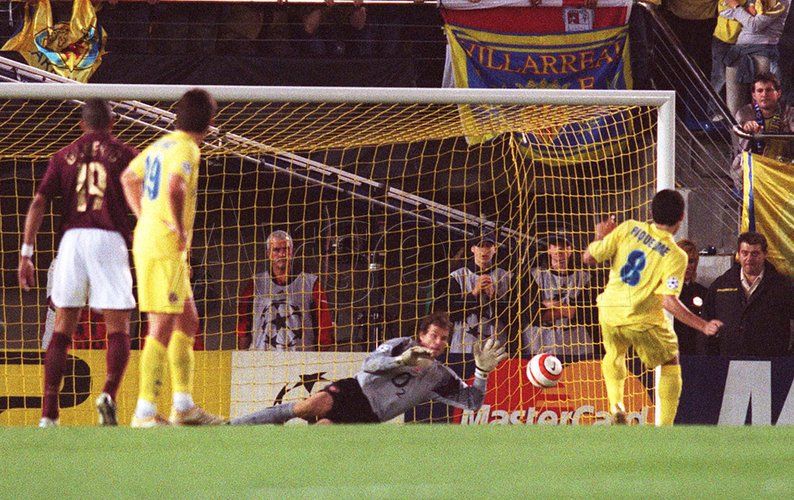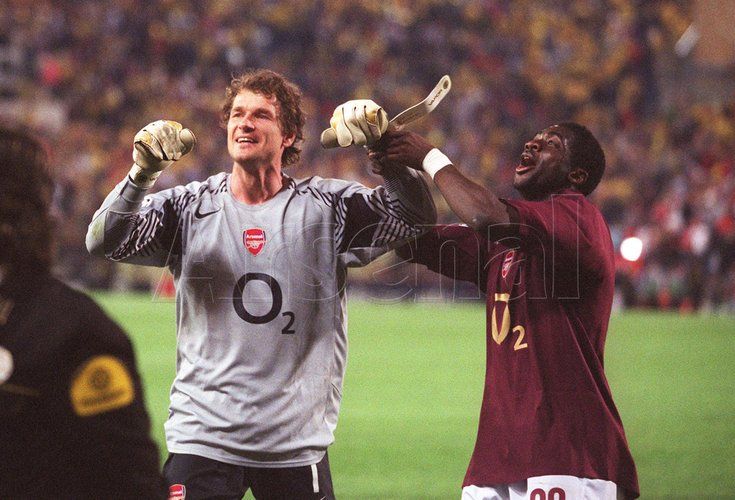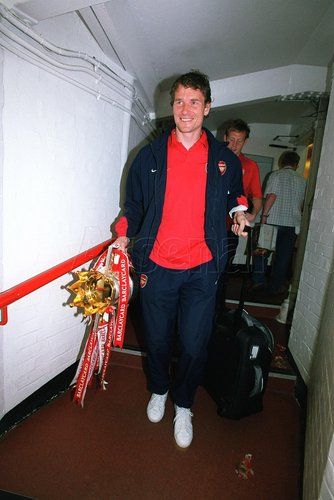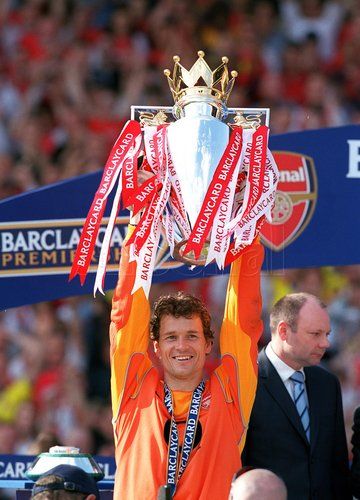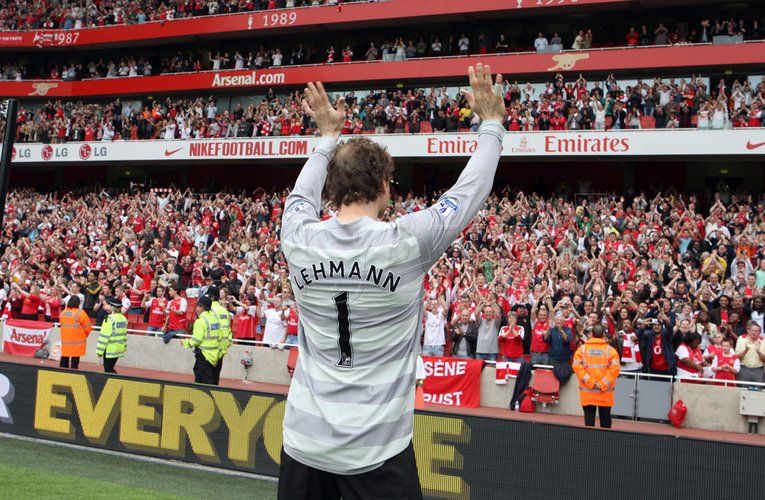Jens Lehmann sits in one of the media rooms at the Arsenal Training Centre, with a photograph of the 2003/04 'Invincibles' team on the wall behind him. It's an appropriate backdrop.
In 2003, Arsenal and their new German goalkeeper had embarked on a record-breaking campaign which would, in the eyes of many, establish them as the best team in Premier League history.
It was the perfect start to life in London for Lehmann. Thirty-eight matches played, 26 won, 12 drawn and none lost. In fact, it took 48 league games before the indomitable stopper was finally on the losing side in a league game in England.
An FA Cup title would follow in 2005 before Lehmann formed the crux of the Arsenal defence which kept 10 consecutive clean sheets en route to a Champions League final meeting with Barcelona a year later, crucially saving Villarreal playmaker Juan Roman Riquelme's late penalty to secure Arsenal's place in Paris.
But, in what became the trend of a summer that promised so much, Lehmann and his team-mates fell agonisingly short of glory at both club and international level.
Lehmann left Arsenal for Stuttgart in 2008 but returned three years later, coming out of retirement to make his 200th appearance for the Club in a 3-1 win at Blackpool. He retired for good at the end of the 2010/11 season but Lehmann's links with Arsenal remain strong - he took training sessions with the Club's youth teams as he worked towards his Uefa Pro License.
The day after Arsenal sealed Champions League qualification for a 16th straight season with a 5-0 aggregate victory against Fenerbahce, Lehmann spoke to Arsenal.com at London Colney about his incredible first season in England, the summer of 2006, retirement and more.
Jens, you signed for Arsenal in 2003 - what do you remember about the move?
"I think if I'd gone on to Liverpool, I wouldn't have come to Arsenal so, in the event, my decision to go to Arsenal was the best one because we won the Premier League"
Jens Lehmann
It was very quick. I remember that I got the call and I had to go over two days later. It was on a Sunday when I called my parents and my wife's parents and said 'we have to tell you something'. They probably expected a baby or something. I told them we were going to London and they were really surprised. They were asking when I was going and I said 'tomorrow' - they were in shock! When my oldest son came here, he suffered from a hiccup, which didn't go. We went to the doctors and finally found out that he had a psychological problem from coming here. The fast switch from going to an English school and learning a new language in a new environment was one he couldn't cope with psychologically. After a while, it settled and he was fine. It was kind of a shock move for my children.
You had been abroad before to play for AC Milan but returned to Germany quite quickly. Was there any apprehension about moving to England?
For me it was a very easy decision. I knew that Borussia Dortmund were in financial trouble. It wasn't public. I always said to myself 'OK, I was in Milan, but only for a short while'. I always wanted to get that right because I wanted to go abroad and play football in a different country. I had the opportunity when I was at Milan to go to Liverpool but I turned it down because I went back to Dortmund. I think if I'd gone on to Liverpool, I wouldn't have come to Arsenal so, in the event, my decision to go to Arsenal was the best one because we won the Premier League here and that matters more than just winning a trophy.
You were an 'Invincible' in your first season. Could you ever have expected that?
Of course not. I came here and said to the boss that I would try to fit in as soon as possible. I knew that he could speak German and I asked him to help me in case I was missing a couple of words. I was good at organising but to come here and organise a defence in a different language was something I thought would not be easy. It turned out not to be difficult. You only need around 100 words in English and most of them are faster than the German equivalent. For example, if you say 'turn', in German you say 'dreh dich um'. There were some words that were really fast and straightforward in comparison.
Did you think about the enormity of what you might achieve?
We focused on the next game. There was this crucial game at Old Trafford where Van Nistelrooy had the chance to win the game and he hit the crossbar, I think that was the basis of the run that was ahead of us. We didn't know that we were that good and nobody could beat us. After games, when I called home I would joke and pretend to be really low and joke that we had lost the game. My wife said 'come on, I don't believe you - you never lose'. That was an ongoing thing for months.
Was there a unique feeling around the squad?
I played with great players. We had world-class players in every department on the pitch. I learnt how to organise a back four from Sol Campbell and Martin Keown. In Germany we played that but it was just an approach. There was no real system of how to play, how to move and how to keep distances. That's what I learned away at Arsenal. I think what was a bit surprising for the fans and the media was my style of play. I fitted in because I would sweep sometimes 30 or 40 yards in front of my goal. We could always play high up and with fast defenders like Kolo Toure, Ashley Cole, Lauren and Sol Campbell, it was always quite easy to sweep behind them. I knew that they were fast enough to save me just in case I misjudged something.
"I started to do meditation here when the boss dropped me... it was quite exhausting but very interesting"
Jens Lehmann
In the run to the Champions League final, your penalty save from Riquelme's penalty is probably the stand-out memory...
I started to do meditation here when the boss dropped me. Being dropped as a goalkeeper means that you have to change club if you want to play. I was 34 I think at the time and it was ahead of the World Cup in Germany, where I was in competition with Oliver Kahn. I couldn't afford not to play. I started to programme my mind differently. I was dropped and thought 'OK, I have to do something different'. After 10 matches, I convinced him to let me play again but I kept on going with this meditational stuff. It was quite exhausting but very interesting. The reason I mention that is because I was very positive when it came to penalties. When I came back, probably until the end of the 2006 season, I hadn't made a mistake because I was always scared to be dropped again. I knew that even if a penalty against us was gained by the opposition, I had to save it. I was thinking 'OK, it's a penalty now, but I need to save that'.
The good thing was that Riquelme had played nearly 180 minutes against us. When you see players on the pitch, you can analyse what they will do when they are under pressure - and a penalty in the last minute is the biggest pressure you can have in a game. From his body language, how he was playing his passes and how he was trying to score goals, I somehow knew that he was going to put it where he did. My intuition and my observations didn't let me down. That was good.
Later in 2006 I had the chance to play in the World Cup in Germany and there came a crucial moment again. There was a penalty shoot-out against Argentina. Cambiasso [whose penalty Lehmann saved in the quarter-final] was playing for Inter Milan. I had a note in this penalty shoot-out but Cambiasso wasn't on the note. I tried to figure out where he would go with his penalty. In his run-up, I remembered that in the preparation for the Villarreal game with Arsenal, we saw some free-kicks and Cambiasso took one or two. I remember that he put one free-kick over the wall with his left foot into the goalkeeper's left corner. I thought he would feel comfortable to put the ball in that corner. As he was running up to shoot, all those thoughts were running through my head. Just before he pulled his leg back to take the shot, I thought 'OK, I've got to go there'. It worked out, thanks to good preparation. When I came to Arsenal, one of the first things Pat Rice said to me was 'Jens, if you fail to prepare, prepare to fail'. I remembered those lines after that.
You also saved from Roberto Ayala. His name was on the list that Andreas Kopke and Huub Stevens' son had prepared but you ignored the information on it. Why?
I think I've won all my important penalty shoot-outs. When I was young, I won them in my youth teams and throughout my professional career I think I won them all. As a goalkeeper, I always tended to go with tactics. I couldn't go to the other side. That's why I ignored what was written on the note because I wanted to go to the side that I did to save the penalty.
What was it like to play in that World Cup?
The German people are still proud of it. People still come to me and thank me for 2006. It was a team effort. It was strange because ahead of the World Cup, we had bad press and bad results. Jurgen Klinsmann was asked to show up in front of the German parliament for special questioning about the World Cup because none of the politicians wanted to be embarrassed by poor performances. Of course he said 'I'm not coming'. It was such a big hype and we were perceived as being so bad, particularly by the biggest tabloid in Germany, Bild. They hammered us all the time until they realised that the public had a completely different impression and were backing us. Then, within the tournament, they had to change. All of a sudden they were praising us and our behaviour. In the first week and a half of the tournament, they were negative. Then it changed. The weather was great. I remember practising in Berlin two days before the opening game and it was 11 degrees and raining. Then, on the next day we flew to Munich and it was 30 degrees. Then the World Cup started and it was really nice.
You lost to Italy in the semi-final. That must have been really painful...
"When I left the first time, I had 199 and I came back to make my 200th appearance. It was great because I was here without any pressure"
Jens Lehmann
Yeah I felt really bad because it was in the last minute that we got knocked out. That's always sad. It's probably one of my biggest disappointments. We were so close to winning it and had started to prepare for another penalty shoot-out. You can't ask to win two penalty shoot-outs and go to the final. Statistically, the chance to go through is very small.
How hard is it to retire and be away from football?
At first it wasn't hard. You go on holiday and it feels like an extended holiday. My problem was that I always had to train. As an athlete, you are fit and you can't just stop. You have to go on because your heart is too big. If you don't do anything, it could cramp and then you've got a real problem. I practised and after three or four months I thought that I may go back again for a couple of months somewhere. Because I knew it inside, I just kept on training. Physically I was quite fit. Then Gerry Peyton called me to see if I could still do it. He must have got a good impression. My handling and judgment was alright. Another two or three months passed and Arsenal had Wojciech Szczesny, Vito Mannone and Lukasz Fabianski all injured. They called me and it was a fantastic opportunity to come back. I was rewarded with one game, my 200th for the Club. When I left the first time, I had 199 and I came back to make my 200th appearance. It was great because I was here without any pressure. Before it was so pressurised and it was quite exhausting. Then I came back and enjoyed it. Training and playing football was nice.
Copyright 2025 The Arsenal Football Club Limited. Permission to use quotations from this article is granted subject to appropriate credit being given to www.arsenal.com as the source.




